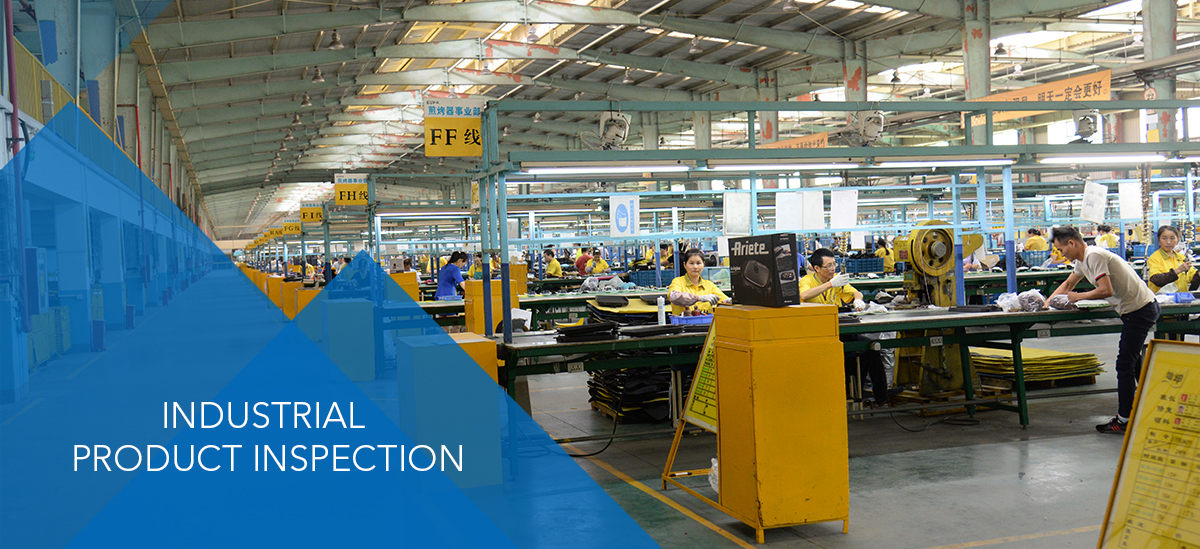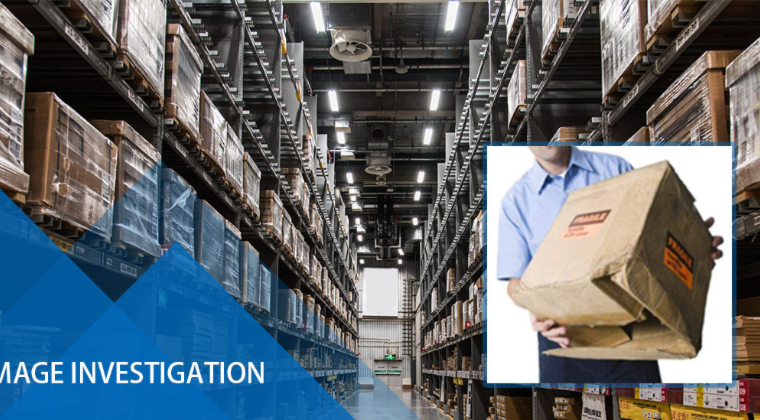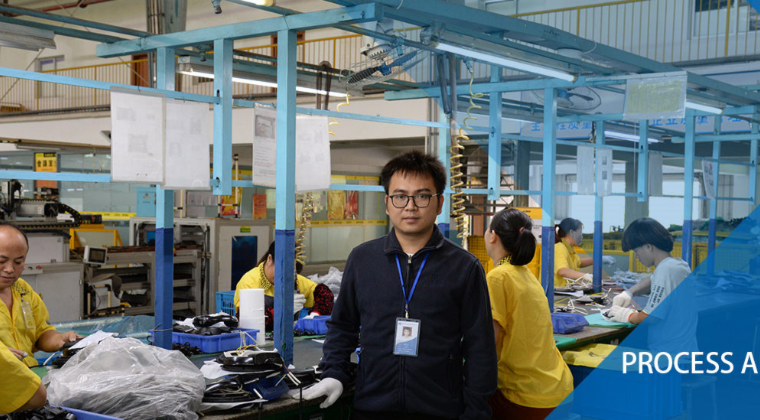Industrial inspection is a core component of quality control in industries. In international manufacturing and trade, industrial inspection provides confidence to buyers, reduces disputes, and ensures that products shipped overseas meet both contract and legal requirements.
Through industrial inspection, companies can identify and rectify defects at an early stage. This reduces the risk of producing substandard products that could damage the company's reputation and result in financial losses. Regular inspection also aids in continuous improvement by highlighting areas that require enhancement.
GIS Inspection provides industrial production inspection services to ensure manufacturers follow the standards and buyers’ requirements during manufacturing to guarantee products quality and reduce purchasing risks.
What is Industrial Products Inspection?
Industrial inspection is a fundamental aspect of the industrial manufacturing process. It involves a meticulous examination of equipment, systems, and processes in an industry to ensure they meet the specified standards.
The primary goal is to ensure that these elements meet specific standards, regulations, and quality requirements. This meticulous examination aims to identify any defects, irregularities, potential hazards, or deviations from established benchmarks that could lead to accidents, operational failures, decreased efficiency, or non-compliance.
Industrial inspection is not only about maintaining machinery and equipment; it also involves assessing the safety of the working environment. This includes examining the physical state of the workplace, evaluating the safety practices in place, and checking the health status of employees. In essence, industrial inspection encompasses every facet of industrial operation to guarantee optimal functionality and safety.
The process of industrial inspection is usually performed by trained and certified inspectors who utilize various inspection methods and technologies. These inspectors are often employees of the company, but they can also be external professionals hired to conduct the inspection rounds. Their expertise and reliability are crucial factors in ensuring the effectiveness of the inspection process.
The Importance of Industrial Product Inspection
Industrial products such as filling systems for technical gases, hot water systems, lighting system, wind turbines, production line, cranes, and tower cranes represent a great potential hazard. Companies that manufacture or operate pressure equipment or tank systems must comply with numerous safety standards in order to protect people and the environment from dangers.
Industrial products inspection is conducted to the prevention of unsatisfactory industrial products from reaching the customer, particularly in situations where failed manufactures can cause injury or even endanger life.
Industrial inspection also plays a vital role in the prevention of workplace accidents. By identifying potential hazards and ensuring the proper functioning of safety equipment, the inspection process helps to maintain a safe working environment. This, in turn, boosts the morale and productivity of employees.
Moreover, regular industrial inspection can save companies substantial money in the long run. By detecting and rectifying issues early, the inspection process prevents costly breakdowns and shutdowns. It also extends the lifespan of equipment and machinery, thus reducing the need for replacements.
Types OF Industrial Quality Assurance Services
Trained and often certified inspectors conduct inspections using various methods and technologies. Different from the inspection for consumer products, industrial product inspection is PPI, DPI and PSI for large or medium scale industrial electro-mechanical equipments or monitoring-testing equipment.
GIS possesses professional engineer team to offer technical consultancy and inspection service to reduce your purchasing risk.
- Supplier assessment
- During production inspection
- Final random inspection- FRI
- Pre-shipment inspection- PSI
- Witness test
- Document review
- Loading supervision
- Sampling
- Expediting
- Used machine inspection
Category of Industrial Industry
The industrial industry covers a wide range of sectors involved in manufacturing, engineering, construction, and heavy production.
Below are the main categories of the industrial sector:
Energy & Power Plant
Asia is a major market for energy production power plants and related support infrastructure. Some of the product category areas we cover include: power transmission and transformation engineering equipment, thermal power station equipment, wind power station equipment, photovoltaic power station equipment, hydropower station and metal structure, as well as much more.
Gas, Oil & Chemicals
Some of the product category areas we cater for in gas, oil and chemicals include: oil and gas drilling equipment, offshore oil exploitation facilities, ground processing equipment, surface gathering and transportation pipeline, oil refining, chemical industries, ethylene, fertilizer, and more.
Industrial Plants & Machinery
GIS Inspection machinery quality control engineers and technical staff are experienced in quality control for machinery including inspections and testing, heavy equipment, industrial plants, mining, transportation and heavy construction. We go above and beyond when it comes to machinery production, safety, operations, maintenance and shipping.
Construction Equipment & Materials
Quality assurance and quality control services from GIS Inspection give you confidence in the quality of all materials, steel products, components and equipment utilized in the construction industry and ensure compliance with all relevant quality standards and regulations.
Whatever your related business, we partner with you to develop a customized quality assurance programmed aligned with your supply chain strategies.
What’s covered in a Product Inspection for Industrial Products?
GIS Inspection general on-site checking for industrial products includes the following criteria:
- Quantity confirm
- Size measurements
- Weight measurement
- Product appearance check
- Performance, safety & function tests
- Assortment check
- Critical components
- Carton status
- Assembly check
- Barcode scan test
- Accessories
- Packing
- Material
- Colors
- Shipping marks
- Logo & Labeling
How to Implement an Effective Industrial Inspection Process
Implementing an effective industrial inspection process requires careful planning and execution. Here are some steps to consider:
Define Inspection Objectives: The first step is to clearly define the objectives of the inspection. This could be ensuring quality control, maintaining safety standards, or extending equipment lifespan.
Develop Inspection Procedures: The next step is to develop detailed inspection procedures. These should outline what needs to be inspected, how the inspection should be conducted, and who should perform the inspection.
Train Inspectors: Inspectors need to be adequately trained to perform their duties effectively. This includes understanding the inspection procedures, using inspection tools, and interpreting inspection data.
Document Inspection Findings: All inspection findings should be properly documented for future reference. This includes recording defects found, corrective actions taken, and recommendations for improvement.
Review and Improve the Inspection Process: The inspection process should be reviewed periodically to identify areas for improvement. This could involve updating the inspection procedures, enhancing inspector training, or adopting new inspection technologies
GIS Inspection: The Quality Control Company You Can Trust
General Inspection Service (GIS Inspection) has been in the quality assurance business for more than 20 years. Our services can equip you with the information you need when buying equipment for installation in China and Asia factories or before shipping to other locations around the globe.
Do you need help with industrial inspections? Reach out to us at GIS Inspection. We are an internationally recognized and CNAS ISO17020 accredited quality control company that has helped over 20,000 clients to prevent quality issues in their supply chain and ensure compliance.








